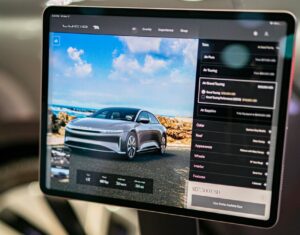
Home / EV Charging News / The Intersection of Electric Cars and Smart Homes: Investigating the integration of electric car charging with smart home systems, enabling automated charging, energy management, and optimization
The widespread adoption of electric vehicles (EVs) has accelerated the exploration of innovative solutions to enhance the charging experience. One such avenue is the integration of electric car charging with smart home systems. By connecting EV charging stations with smart home technology, homeowners can unlock a range of benefits, including automated charging, energy management, and optimization. In this article, we delve into the potential of integrating electric car charging with smart home systems and explore how it can revolutionize the way we charge our EVs.
Integrating EV charging with smart home systems empowers homeowners with automated charging capabilities. Here are some key aspects of automated charging:
The integration of electric car charging with smart home systems goes beyond automated charging and extends to energy management and optimization. Here’s how it can benefit homeowners:
Integrating electric car charging with smart home systems provides homeowners with intelligent monitoring and control features. Some key benefits include:
The integration of electric car charging with smart home systems presents exciting opportunities to revolutionize the charging experience for EV owners. By leveraging the capabilities of smart home technology, homeowners can benefit from automated charging, energy management, and optimization. From scheduled charging and dynamic tariff adjustments to load balancing and renewable energy integration, the possibilities are vast. As the integration progresses, homeowners can expect enhanced convenience, cost savings, and a more sustainable approach to EV charging. The future holds tremendous potential for integrating electric car charging with smart home systems, bringing us closer to a seamless, efficient, and intelligent charging ecosystem.
$4,150.00 Original price was: $4,150.00.$3,990.00Current price is: $3,990.00.
$10,690.00 – $11,390.00

Your Power Management Partner for Over 25 Years Future Generations Depend on Our Decisions Today ™
2024 © All rights reserved by CyberSwitching